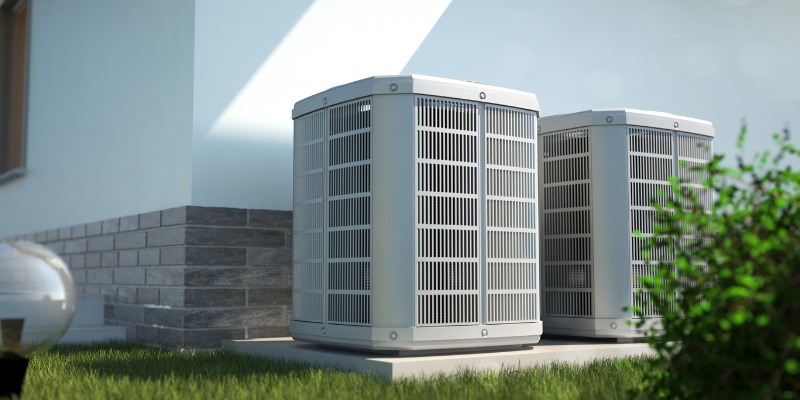Every summer your air conditioner works hard to keep your home cool. But how do you know if it is working efficiently and not guzzling too much energy? Here we answer five common questions about HVAC in the summer.
1. Is there a way to improve the efficiency of my HVAC system?
Yes, there is:
For existing units: The simplest, and most affordable way to improve the efficiency and the life of your HVAC system is to replace and/or clean your air filters. This also improves the air quality in your home. When you are powering up your air conditioner often, monthly filter changes are advised. As well, keeping your blinds or curtains drawn, or better yet investing in some shades for your home will help keep rooms cooler so you don’t have to crank up the AC as high. Last but not least, ensure you have nothing blocking your HVAC vents so air can flow freely.
For new units: When choosing a new unit, you want to check the Seasonal Energy Efficiency Ratio (SEER). HVAC models are tested and rated by calculating the cooling output over the span of a typical cooling season divided by the total electric energy output during this time. You want a higher SEER rating, as the higher the SEER rating, the higher the energy efficiency. While these models tend to be more expensive, you can save money over the life of the HVAC system in energy bills. Invest in the highest SEER, and you can afford to enjoy the most savings in energy costs.
Also, setting your system to 25.5°C when home in the summer and 28°C when away will help you save energy.
Looking to improve the efficiency of your HVAC system? At Air Treatment ClimateCare, we can help. Reach out to our team today for more information!

2. Is there an easier way to keep a comfortable temperature in my home in the summer?
A smart thermostat is one of the easiest ways to maintain a comfortable temperature in your home all year round. Not only does it help save on energy bills, but it also allows you to program your day’s temperatures to adjust automatically. When you aren’t home, for example, you can have the AC set a few degrees higher and when you are home it can automatically adjust to cooler temperatures. This can be done throughout the year, adjusting to suit your lifestyle.
3. What kind of filter is best for my HVAC system?
Each HVAC system has its own filter size. This is the first thing to check when choosing an air filter. Next, filters are rated on what is called a minimum efficiency reporting value (MERV). You should be choosing a higher-grade filter if you have people in the home with allergies or asthma such as pleated air filters. Just keep in mind the pleats clog faster, so you do have to replace them more often.
4. Is there a way to reduce humidity in my home with HVAC in the summer?
There are two options to reduce humidity with your HVAC system. The first is to see if your system has a dry air mode. It usually appears as a water drop on your controller. The second is to have a whole-home dehumidifier installed as part of your HVAC system.
5. How often should I schedule service and/or maintenance for my HVAC system?
Your HVAC system will last longer and perform better with a professional maintenance service call in the spring and fall.
Your HVAC professional can tell you the HVAC things to know so you can make the most of your HVAC system in the summer. Contact Air Treatment ClimateCare today.








